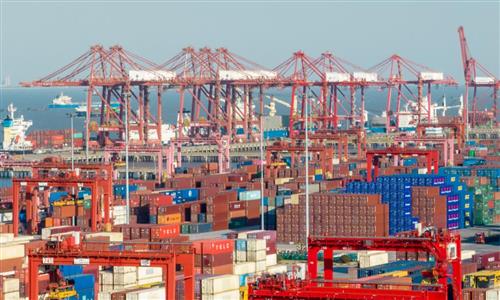
Illustration: Chen Xia/GT
Amazon.com plans to launch a section on its shopping site featuring cheap items that ship directly to overseas consumers from warehouses in China, Reuters reported on Wednesday, citing an Information report. If the Reuters' report is true, cost-effective Chinese goods such as fashion and home appliances are likely to generate more profits for the US-based e-commerce giant.A number of US politicians seem unwilling to admit the fact that even though China's manufacturing sector has been facing rising labor costs, made-in-China products remain in great demand in the West. Cost-effective Chinese goods are common in stores across the US. Even on online websites, consumers can find a wide variety of products imported from China.
Against the backdrop of fierce competition in the global market, e-commerce giants cannot afford to forego the dividends of made-in-China products. Some observers believe Amazon's reported new storefront will mark the giant's most aggressive attempt yet to fend off growing competition from e-commerce upstarts Temu and Shein, which both have ties to China and bring made-in-China goods directly to overseas consumers.
As China keeps consolidating its advantages in manufacturing despite rising labor costs, an increasing number of e-commerce storefronts are scrambling for cost-effective goods made in China, which supports their sales in the global market.
China's manufacturers are still keeping their hold of the market share across low-technology and labor-intensive industries, including clothing, household appliances, electronic goods, cosmetics and even data cables, power banks, and phone cases. The products manufactured by China are irreplaceable in the global production chain. This means that e-commerce giants including Amazon have to rely on made-in-China products to enhance their own competitiveness and win consumers from their competitors.
In 2023, cross-border e-commerce trade in Yiwu, East China's Zhejiang Province, reached 121.16 billion yuan ($16.67 billion), up 11.8 percent on a yearly basis. Yiwu has been known for a long time as China's biggest hub for small commodities, and thus offers a window to observe strong demand for made-in-China products.
Cross-border e-commerce businesses are booming, mainly due to the growing overseas recognition of Chinese brands, cost-effective Chinese goods, and the simplified business procedures on the platform compared with traditional trade model.
Western e-commerce giants looking to gain more exposure in the fiercely competitive international market are increasingly attracted to cost-effective Chinese goods and opportunities for supply chain cooperation. Amazon's reported new storefront serves as a good example of this trend. However, a rise of trade protectionism in the US is likely to be a major obstacle, which is regrettable.
The US Department of Homeland Security said in April that de minimis shipments - low value packages often sent directly to US consumers - will attract heightened scrutiny, the Wall Street Journal recently reported. Historically, parcels valued at less than $800 sent directly from abroad aren't subject to duties and receive little scrutiny from US customs under the same exemption enjoyed by American travelers returning home with souvenirs, according to the report. But, in recent years, political elites and trade protectionists have been seeking to change this provision. Obviously, American consumers and e-commerce companies will be the victims of this rising trade protectionist mentality among US policymakers.
The US should reflect on its trade policy toward China. Trade between China and the US recorded a slump of 11.6 percent year-on-year in US dollar terms in 2023, according to data from the General Administration of Customs of China.
The essence of China-US economic and trade cooperation is mutual benefit, and there is no winner in a US-initiated trade row and Washington's "decoupling" push. If political elites in Washington can consider the interests of American consumers and businesses, they should abandon unilateralism and trade protectionism, stop suppressing global enterprises, and steer China-US economic relations back onto a normal track as soon as possible.
The author is a reporter with the Global Times. bizopinion@globaltimes.com.cn



